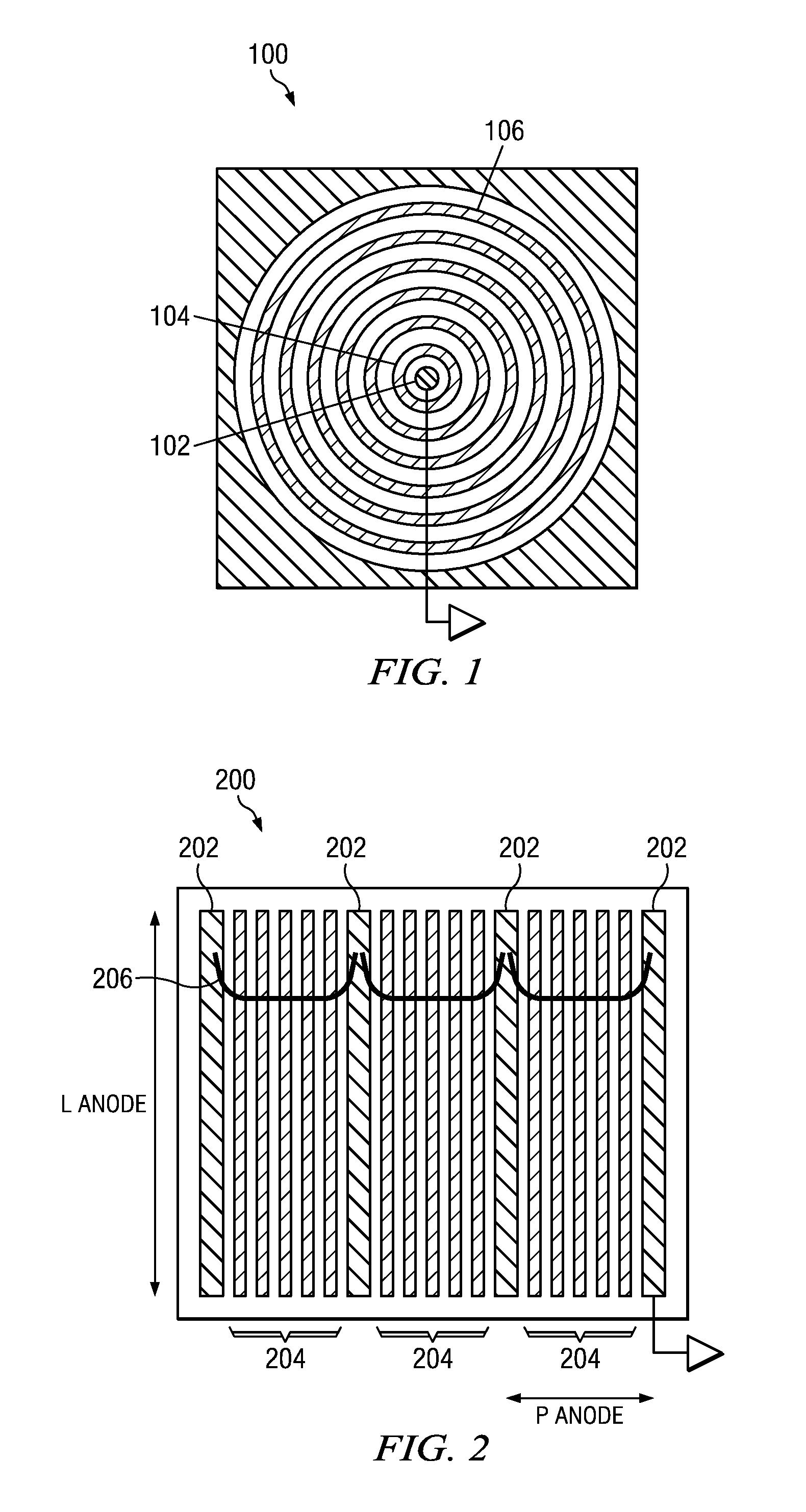Simplified Silicon Drift Detector and Wraparound Neutron Detector
a technology of drift detector and silicon solid state detector, which is applied in the field of radiation detection, can solve the problems of large area sdds (i.e., >100 mmsup>2/sup>), other significant limitations, and pronounced spread between drifting electrons, so as to reduce ballistic deficit and shorten drift distance
- Summary
- Abstract
- Description
- Claims
- Application Information
AI Technical Summary
Benefits of technology
Problems solved by technology
Method used
Image
Examples
Embodiment Construction
[0062]FIG. 1 depicts a traditional SDD (100) having a small circular anode (102) at its center. By keeping the center anode (102) smaller relative to the overall area of the detector, capacitance of the detector can be minimized. This minimization reduces the series-noise component and thus reduces (i.e., improves) the overall inherent electronic noise of the device. This central anode (102) is then linked to the radiation detection circuitry. A low voltage bias is applied to the inner drift rings (104) with the highest reverse bias is applied to the outer rings (106).
Linear Drift Detector with Linear Anodes
[0063]Another way to reduce the capacitance of SDD detectors is to make drift detector with thin rectangular anodes where the drift structures are linear. Although the capacitance of such detectors tends to be larger than that of a circular SDD, this new anode geometry provides other advantages that more than offset the increased noise. Such a detector is depicted in FIG. 2.
[0064...
PUM
 Login to View More
Login to View More Abstract
Description
Claims
Application Information
 Login to View More
Login to View More - R&D
- Intellectual Property
- Life Sciences
- Materials
- Tech Scout
- Unparalleled Data Quality
- Higher Quality Content
- 60% Fewer Hallucinations
Browse by: Latest US Patents, China's latest patents, Technical Efficacy Thesaurus, Application Domain, Technology Topic, Popular Technical Reports.
© 2025 PatSnap. All rights reserved.Legal|Privacy policy|Modern Slavery Act Transparency Statement|Sitemap|About US| Contact US: help@patsnap.com



